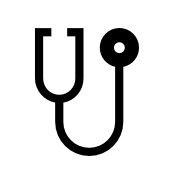4.5: Reflective Writing
- Page ID
- 16518
What it is?
Have you ever been asked to reflect on a text or an experience?
Reflective writing is used by different healthcare professions in various ways, but all reflective writing requires that you think deeply and critically about an experience or a text. At the centre of reflective writing is the “self” – including a deep analysis of you in relation to the topic. Reflective writing is a process that involves recalling an experience or an event, thinking and deliberating about it, and then writing about it.
You may be asked to engage in reflective writing related to an array of topics: the reading you are doing for a course, your experience working in a group, how you solved a problem, how you prepared for class or for an exam, a healthcare issue or a new theory. You will be expected to reflect on your clinical practice often throughout your nursing studies and for the rest of your nursing career to grow, learn, and demonstrate your continuing competence.
In nursing, reflective writing is part of what is called “reflective practice.” Early in your nursing program, you will become familiar with the College of Nurses of Ontario requirements for nurses to engage in reflective practice: this legislated professional expectation involves an intentional process of reflecting to explore and analyze a clinical experience so that you can “identify your strengths and areas for improvement” with the aim of strengthening your practice (College of Nurses of Ontario, 2019).

Figure 4.3: Reflective writing
How to do it?
Although there are many ways to reflect, one common framework called LEARN was developed by the College of Nurses of Ontario (1996). See Figure 4.4.

Figure 4.4: Writing reflectively
Variations of this acronym have been taken up, but it essentially stands for:
- Look back. Recall a situation that was meaningful to you in your practice.
- Elaborate. Describe the situation from both an objective and subjective perspective (e.g., what did you see, hear? Who was involved and what interactions were observed? What did you think and feel?)
- Analyze. Examine how and why the situation happened the way it did. Think about it in the context of your nursing courses and the literature.
- Revise. Consider how and why your practice should remain the same and how it should be changed.
- New trial/perspective. Think and move forward. What will you do differently when a similar situation arises?
More recently, reflective writing has been described in the context of narrative writing in which you engage in personal and professional storytelling. A narrative approach to reflective writing asks you to think about storied elements (e.g., characters, events, setting) of an experience: What happened? How did the situation begin? Who was involved? Where did it take place? What emotions were people feeling? How did the situation end? As you can see, these types of questions can easily be integrated into the LEARN framework too.
What to keep in mind?
You will be expected to engage in reflective writing throughout your nursing program. Sometimes you will be asked to use the LEARN framework or another approach. Here are some tips on good reflective writing:
- If possible, choose a topic or situation that is meaningful to you.
- Be vulnerable in your writing and share your thoughts and feelings (you don’t need to write about a sanitized version of yourself – it’s okay to ponder mistakes or areas for improvement).
- Description is important, but so is analysis so that you can gain new insights.
- Think critically about your experience and be open to new perspectives.
Student Tip
The growth of reflection
Graduates or senior-level students will tell you that reflective writing changes over the course of your program. As you advance, your forms of reflective writing will evolve from descriptive to more analytical. You will be expected to refer to the literature to explain your analysis and support your claims. You should also always engage in reflection in the context of the courses that you are taking. Some courses focus on the personal self; others focus on the professional self, as well as nursing in the community or on a broader societal level.
Activity: Check Your Understanding
Think about a healthcare event that you encountered or a health and illness experience of a friend or relative that is meaningful to you. In reflecting on this experience, how could you apply the LEARN format?
The original version of this chapter contained H5P content. You may want to remove or replace this element.
References
College of Nurses of Ontario (2019). Self-Assessment. Retrieved from: www.cno.org/en/myqa/self-assessment/
College of Nurses of Ontario (1996). Professional profile: A reflective portfolio for continuous learning. Toronto: CNO.


